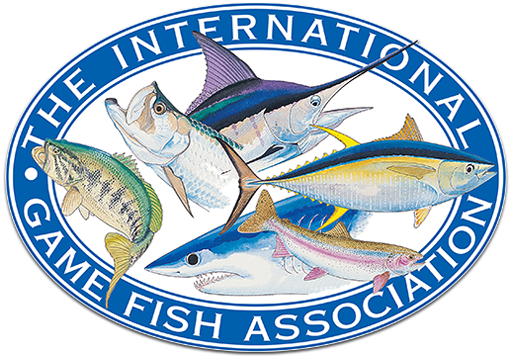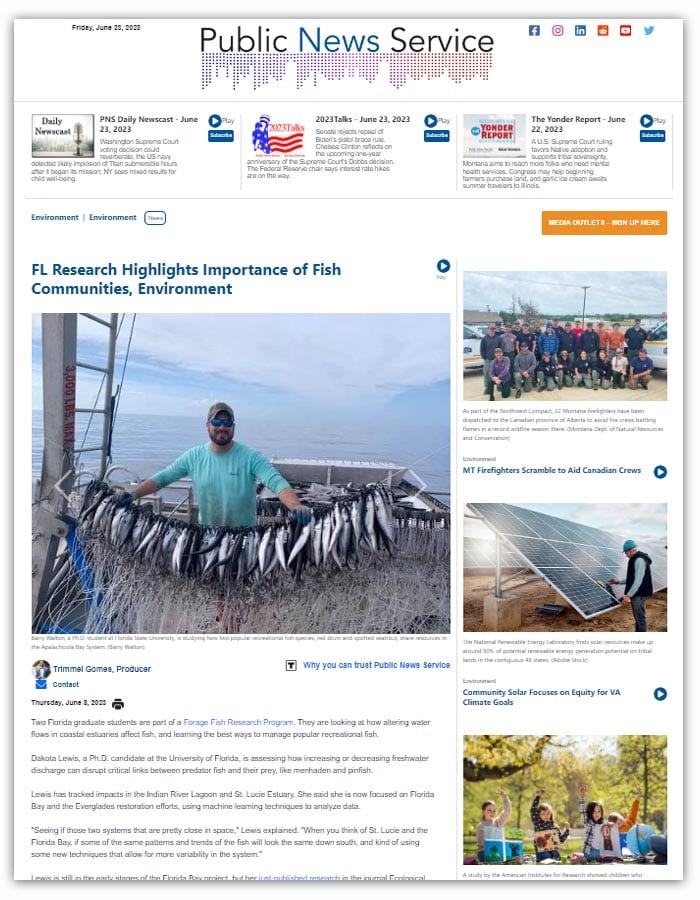Forage Fish Research Project Update
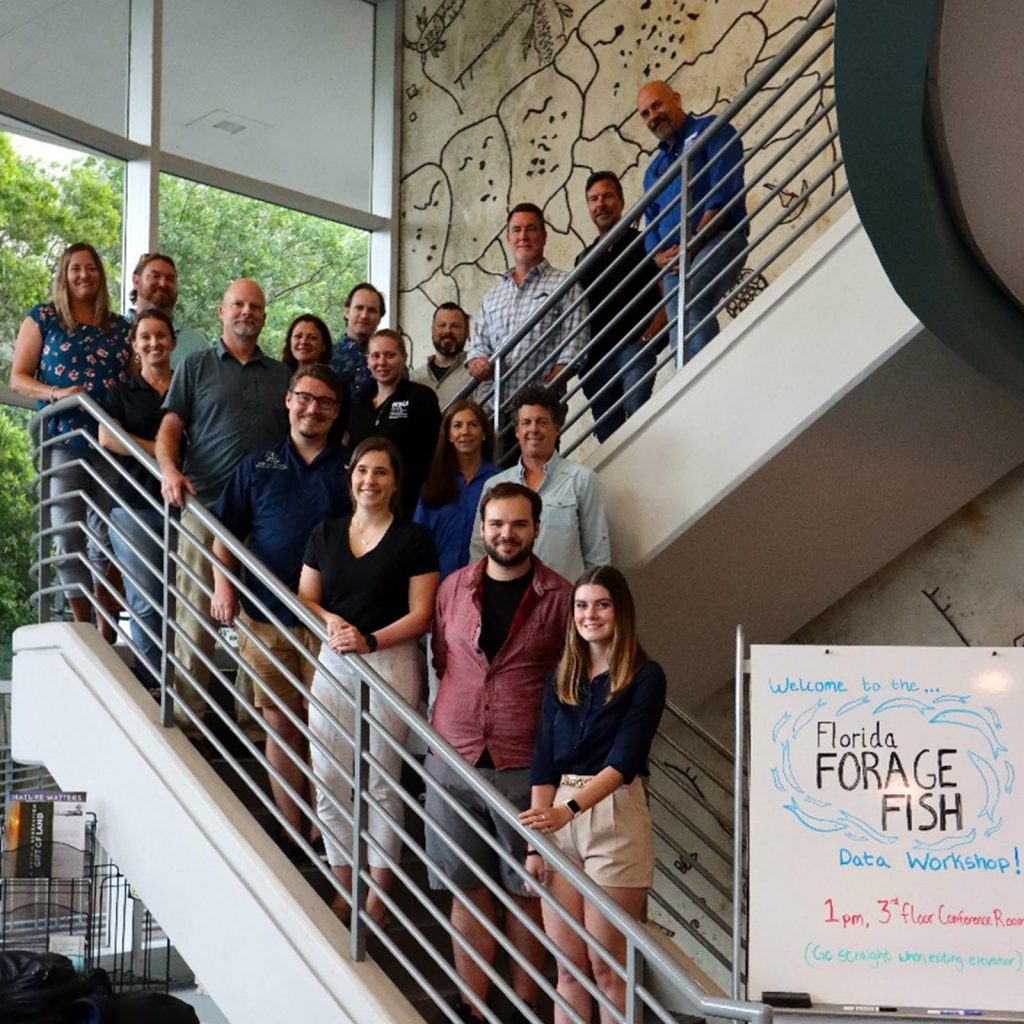
On Wednesday May 24, 2023, the Florida Forage Fish Coalition, made up of IGFA, Pew Charitable Trusts, Fish Florida, American Sportfishing Association, Wild Oceans and the Angler Action Foundation, hosted the 7th Annual Forage Fish Research Program Data Workshop. The Workshop is an annual opportunity for the Forage Fish Research Program (FFRP) to update interested stakeholders and the academic community on the work being done on Florida’s forage fish by Florida Fish and Wildlife Conservation Commission’s Fish and Wildlife Research Institute (FWRI) and FFRP graduate student fellows. The 2023 Workshop included a presentation on the history of the FFRP fellowship program as well as presentations on FWRI’s research priorities and data availability. For the first time in the fellowship program, the FFRP welcomed the Tampa Bay Estuary Program and the Southwest Florida Water Management District, to present their available data and ongoing research that aligns with FWRI and future fellowship research.
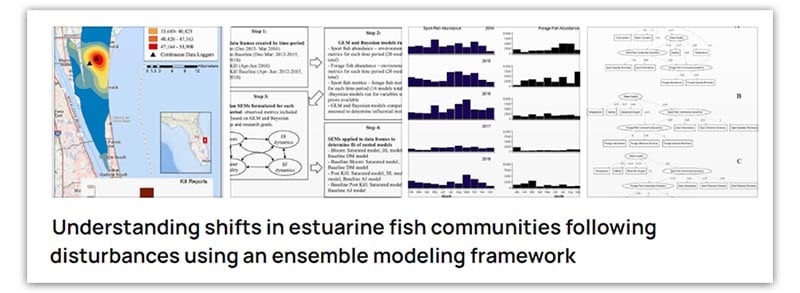 The highlights of the Workshop each year are the presentations by current FFRP fellows. This year the first fellow
The highlights of the Workshop each year are the presentations by current FFRP fellows. This year the first fellow 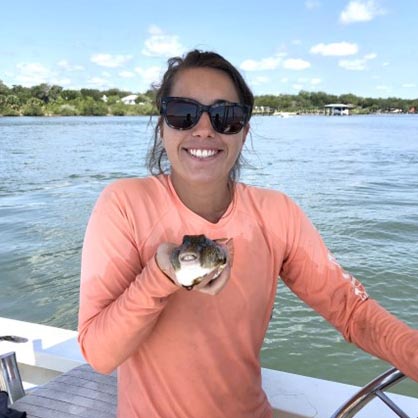 to present was Dakota Lewis, a Ph.D. student at The University of Florida. Dakota presented her research examining how fish respond to changes in Everglades habitats and freshwater flow. Her work seeks to answer the question- How will estuarine fish community structure respond to related changes in freshwater quantity, quality, and benthic habitat availability due to Everglades restoration? Dakota is implementing machine learning and complex statistical analyses to explore the relationship between these fish communities, including both predators and prey in relation to ongoing restoration efforts.
to present was Dakota Lewis, a Ph.D. student at The University of Florida. Dakota presented her research examining how fish respond to changes in Everglades habitats and freshwater flow. Her work seeks to answer the question- How will estuarine fish community structure respond to related changes in freshwater quantity, quality, and benthic habitat availability due to Everglades restoration? Dakota is implementing machine learning and complex statistical analyses to explore the relationship between these fish communities, including both predators and prey in relation to ongoing restoration efforts.
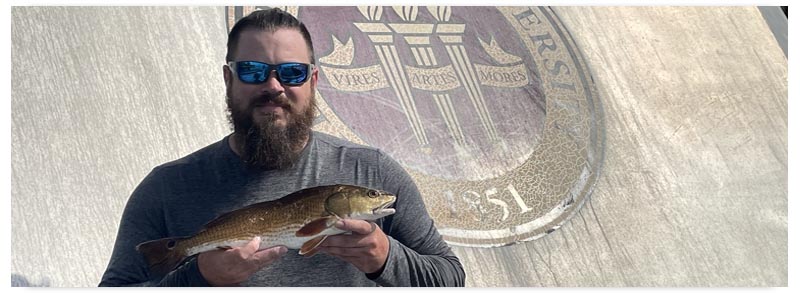 The next presentation came from Barry Walton, a Ph.D. student at Florida State University. Barry is examining the
The next presentation came from Barry Walton, a Ph.D. student at Florida State University. Barry is examining the 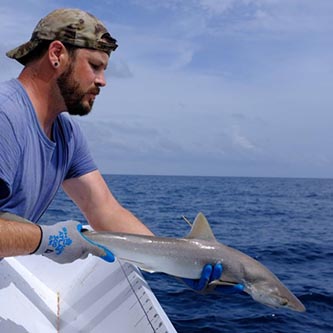 contribution of various forage fish species to the diet of redfish and spotted seatrout in Apalachicola Bay. The project seeks to characterize fatty acid profiles of select forage fish species to evaluate the efficacy of this method to differentiate prey species, and then estimate their contribution to the two predator species’ diets. The study then uses FWRI Fisheries Independent Monitoring catch data to explore prey availability, species distribution, and predator-prey interactions. Barry is implementing stable isotope and fatty acid profile analyses to determine the relative importance of each prey type to predators and how they interact with each other.
contribution of various forage fish species to the diet of redfish and spotted seatrout in Apalachicola Bay. The project seeks to characterize fatty acid profiles of select forage fish species to evaluate the efficacy of this method to differentiate prey species, and then estimate their contribution to the two predator species’ diets. The study then uses FWRI Fisheries Independent Monitoring catch data to explore prey availability, species distribution, and predator-prey interactions. Barry is implementing stable isotope and fatty acid profile analyses to determine the relative importance of each prey type to predators and how they interact with each other.
"The FFRP fellowship program has been a major success over the years with 11 fellowships funded, $170,000 raised to support the fellowships, and 10 peer-reviewed publications with more on the way."
A recent Public News Service story was recently published about the research being done by Barry and Dakota. To read the story, click here.
The FFRP fellowship program has been a major success over the years with 11 fellowships funded, $170,000 raised to support the fellowships, and 10 peer-reviewed publications with more on the way. Fellows have gone on to work in academia and at numerous federal and state agencies including U.S. Geological Survey, the National Oceanographic and Atmospheric Administration, and FWRI. Dakota Lewis, the only fellow to receive the fellowship twice while studying at two different schools is quoted as saying, "The forage fish research fellowship has given me the freedom to be scientifically creative during my PhD. Ultimately, I have been able to leverage the support of the forage fish program to expand the scope of my dissertation research across a broader geographic region and explore cutting-edge machine learning methodologies."
Proposals for 2023-2024 fellowships are due on June 30, 2023, and we look forward to the great research that will be done by the next round of FFRP fellows. For more information about the fellows and the program go to https://floridaforagefish.org/
